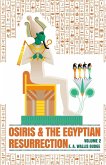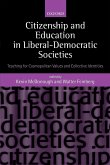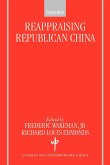Nationalism is the attempt of culturally-distinct peoples to attain political self-determination. Self-determination was generally afforded by traditional states, which employed a form of governance based on indirect rule. After the late 18th century, the rise of the modern state led to a new form of governance characterized by direct rule. Containing Nationalism argues that the impetus for the most common type of nationalism arises from the imposition of direct rule in culturally heterogeneous societies. Direct rule stimulates national identity by making cultural distinctions more salient for individuals' life chances. At the same time it reduces the resources of local elites, giving them a motive to mobilize nationalist opposition to central authorities. All told, these effects heighten the demand for sovereignty. The book suggests that political institutions that reintroduce indirect rule offer the leaders of modern countries the best available means of containing nationalist violence within their borders.
Nationalism has become the most prevalent source of political conflict and violence in the world today. Scholarship has provided scant guidance for containing the dark side of nationalism--its widely publicized excesses of violence, such as ethnic cleansing and genocide. Based on fundamental theoretical ideas about the formation and solidarity of groups, Containing Nationalism offers a groundbreaking unified explanation of the dynamics of nationalism across the broad sweep of history and geography. Michael Hechter argues that the impetus for the most common type of nationalism arises from the imposition of direct rule in culturally heterogeneous societies--stimulating national identity, reducing the resources of local elites, motivating the mobilization of nationalist opposition to central authorities, and ultimately heightening the demand for sovereignty. Hechter suggests that political institutions that reintroduce indirect rule offer the leaders of modern countries the best available means of containing nationalist violence within their borders.
Hinweis: Dieser Artikel kann nur an eine deutsche Lieferadresse ausgeliefert werden.
Nationalism has become the most prevalent source of political conflict and violence in the world today. Scholarship has provided scant guidance for containing the dark side of nationalism--its widely publicized excesses of violence, such as ethnic cleansing and genocide. Based on fundamental theoretical ideas about the formation and solidarity of groups, Containing Nationalism offers a groundbreaking unified explanation of the dynamics of nationalism across the broad sweep of history and geography. Michael Hechter argues that the impetus for the most common type of nationalism arises from the imposition of direct rule in culturally heterogeneous societies--stimulating national identity, reducing the resources of local elites, motivating the mobilization of nationalist opposition to central authorities, and ultimately heightening the demand for sovereignty. Hechter suggests that political institutions that reintroduce indirect rule offer the leaders of modern countries the best available means of containing nationalist violence within their borders.
Hinweis: Dieser Artikel kann nur an eine deutsche Lieferadresse ausgeliefert werden.








